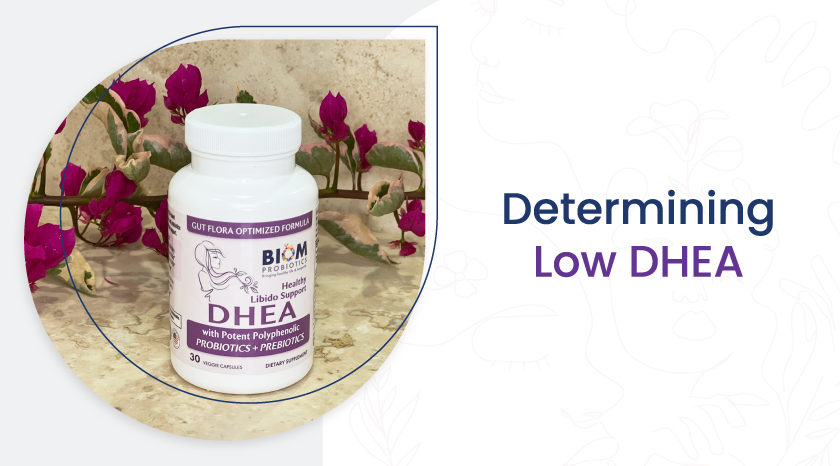Determining if you are low in DHEA typically involves a combination of assessing symptoms, age-related considerations, and medical testing. Some common signs of low DHEA levels may include:
- Fatigue: Persistent fatigue or low energy levels can be associated with lower DHEA levels.
- Mood Changes: DHEA is linked to mood regulation, and low levels may contribute to mood swings, irritability, or feelings of depression.
- Reduced Libido: DHEA is involved in the production of sex hormones, and low levels may impact libido or sexual function.
- Cognitive Changes: Some individuals with low DHEA report difficulties with concentration, memory, or mental clarity
- Muscle and Joint Discomfort: DHEA plays a role in maintaining muscle mass and joint health. Low levels may contribute to weakness or discomfort.
- Skin Changes: DHEA is associated with skin health, and deficiencies may contribute to dryness or signs of premature aging.
If you suspect low DHEA levels, it’s crucial to consult with a healthcare professional. Blood tests can measure DHEA-S (sulfate), the stable form of DHEA in the blood, providing insight into your hormonal status. Self-diagnosis and supplementation without professional guidance can lead to imbalances, so seeking medical advice is essential for a comprehensive understanding of your hormonal health.





